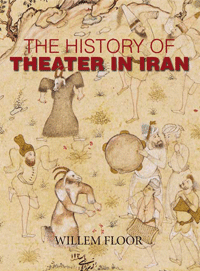 'Til time do us part 'Til time do us part
The diminishing bond of Iranian marriage
Hamid Karimianpour
August 15, 2005
iranian.com
It is not a secret that many Iranians who live abroad have fallen
prey for the ever-increasing divorce rate. One has to ask: does
marriage still offer a perfect arena for mutual love, happiness,
and fortune? Or do the transformations of the twenty-first century
necessitate a call for casting a new light on marriage and relationship?
Approaching this question is likely to offend the readers. However,
the purpose here is not to ridicule anyone who chooses to marry,
but to instigate a debate on this very important issue.
Estimates uncover an average rate of divorce in Europe and North-America
of about 50% (45% to 55% in places). This rate has proven, with
a margin of error, to be fairly and broadly distributed among families
of all colours, ages, and ethnic backgrounds.
What about the quality
of the other half of marriages? It would be too black-and-white
a picture to hold that a marriage which does not end up in divorce
is necessarily a perfect unification of Romeo and Juliet.
 Regrettably,
I am oblivious of any reliable statistics to accurately picture
the overall pattern of marriages. Whatever the figures are, the
number of divorced couples combined with the number of low quality
marriages which chronically suffer anguishing conflicts must amount
to more than half. This means that there must be more than 50%
chance of failure, if the aim is to create a warm and loving environment
for the family and for one's children. Regrettably,
I am oblivious of any reliable statistics to accurately picture
the overall pattern of marriages. Whatever the figures are, the
number of divorced couples combined with the number of low quality
marriages which chronically suffer anguishing conflicts must amount
to more than half. This means that there must be more than 50%
chance of failure, if the aim is to create a warm and loving environment
for the family and for one's children.
Will marriage still be a good idea? An investment in a business
venture is deemed foolish unless its promise of success significantly
exceeds the chance of failure. What could ever justify marriage,
when the investment stretches far beyond an individual's
material wealth to her or his whole person?
Critics may object
to likening business with family life: they may hold that one
makes a much more informed decision before rolling up the wedding
ring.
My response is simple. Firstly, not even critics can deny that
my position is valid for at least over half the population, to
whom marriage no longer provides a viable and stable institution.
Secondly, did not everyone whose marriage ended up badly one
way or another really believed at the time of declaring "Yes,
I do" that their marriage would be a lasting one? What
one buys into when declaring "Yes, I do" is
not a fixed and static relationship, but a dynamic institution
whose future direction and development one cannot predict.
Hidden
beneath the belief that "I" am the exception
and that "my" marriage will be successful
lies a complacent assumption that I know better than the majority
of people who end up in unhappy and despondent marriages.
Many choose to enter marriages in the hope that things will turn
out well for them and if they do succeed, they reject my position
as invalid. However, the infeasibility of marriage does not depend
on its actual outcome in particular cases, but on the probability
of failure: the fact that I may speed up to 100 miles per hour
along the highway and luckily survive does not change the truth
that it is foolish to speed.
 Is it not thus the case that the validity
of the statement "it is foolish to speed" does
not only apply to those ending up in fatal accidents, but to everyone? Is it not thus the case that the validity
of the statement "it is foolish to speed" does
not only apply to those ending up in fatal accidents, but to everyone?
While I believe and hope that the pursuit of love and passion
and the urge for sexual gratification ensure strong bondage among
us as long as it lasts, as well as secure the procreation of a
future generation, my point is that everyone facing the choice
of entering a marriage which is more likely to fail than succeed
has to stop and ask the question "am I acting reasonably?"
I
believe the answer is an unreserved no.
|